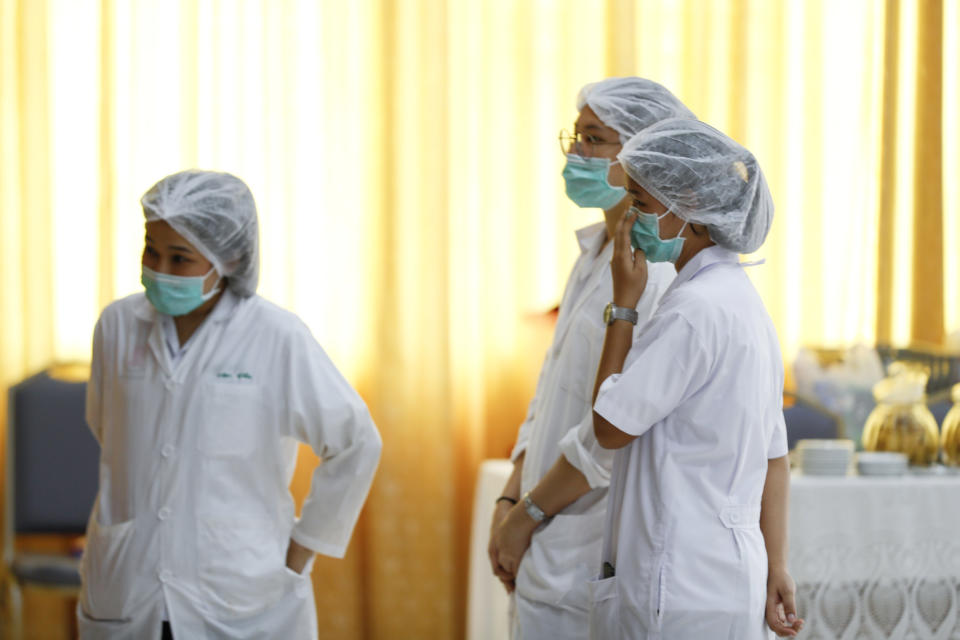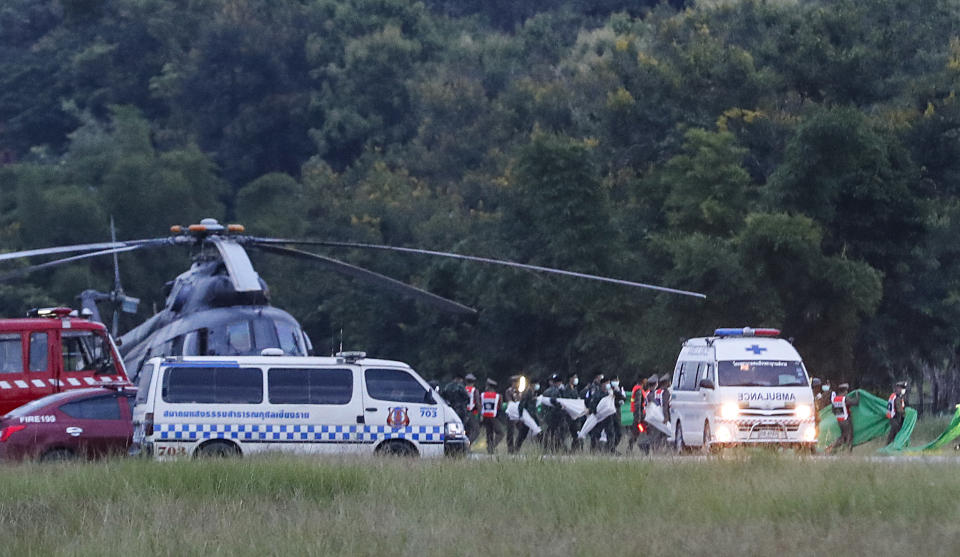The delicate process of nursing the Thai cave boys back to health
The final five members of a young football team have been rescued from a flooded Thai cave, with the focus now turning on how to restore the 12 boys and their coach to full health following 18 harrowing days trapped deep inside.
Elite foreign divers and Thai Navy SEALs extracted the final batch of four boys, plus the 25-year-old coach, on Tuesday evening via a treacherous escape route that required them to squeeze through narrow, water-filled tunnels in darkness.
“All 12 ‘Wild Boars’ and coach have been extracted from the cave,” the SEALs said in a Facebook post, referring to the boys by the name of their football team.
The Wild Boars soccer team had not seen sunlight for more than two weeks after being trapped in the Tham Luang cave complex in northern Thailand.
Their eyes had become so adjusted to the darkness of the cave, they had to wear protective sunglasses once they emerged.

Thailand’s public health ministry’s permanent secretary, Dr Jesada Chokedamrongsuk said the boys would slowly be exposed to more light in coming days, with ongoing checks to monitor their progress.
Despite their pleas for spicy fried chicken upon their rescue, the brave youngsters will for now need to settle for a soft food diet including rice porridge and bread as they ease back into a normal diet.
They’re all out! Soccer team and coach rescued from Thai cave
Thai Navy SEAL’s touching Facebook post amid cave rescue celebrations
Aussie doctor pushes on in Thai rescue despite past caving tragedy
How the first group of boys were rescued from flooded Thai cave
Coach of trapped soccer team apologises to parents in letter sent out with divers
During their time in the cave they were fed a series of high-protein foods after they were discovered by the Navy SEALs nine days in.
All of the team are receiving tetanus and rabies shots, while two boys have also been placed on antibiotics after showing signs of pneumonia.
Why are they being quarantined?
Their relieved parents and families will need to wait a little longer before they can wrap their arms around the boys.
They are malnourished and weak, and doctors are probably worried that they could be susceptible to germs spread by family members or other visitors, Dr. W. Ian Lipkin, a Columbia University infectious diseases expert, says.
But it is also possible they are infection risks to others.
Thai doctors have said they did not know what type of unusual illnesses the boys may have picked up in the cave.

“We have never experienced this kind of issue from a deep cave” and doctors are running a battery of tests on the boys, Jesada Chokdumrongsuk, deputy director-general of the Public Health Ministry, said.
Bats living in caves can spread viruses ranging from rabies to Nipah – which can cause pneumonia, seizures and death.
The boys told doctors they did not see any bats or other animals, and experts say it is unlikely bats would dwell as deep in a cave as the boys were.
If medical tests show no dangers after another two days, parents will be able to enter the isolation area dressed in sterilised clothing, staying two metres away from the boys, another public health official, Tosthep Bunthong, said.
In the second group, rescued on Monday night, one of the boys had an unusually low pulse but all were in good condition by Tuesday morning.
What lies ahead for the boys?
Dr Lipkin said the most likely problems would stem from “the stress associated with this harrowing experience”.
One of the Thai doctors said the boys were happy but psychologists would be evaluating them.

The guided escape was stressful and Thai Prime Minister Prayuth Chan-ocha said the boys were given an anti-anxiety medication to help calm their nerves.
People who endure such an intense and dangerous event can go on to suffer lasting anxiety, depression and other symptoms of post-traumatic stress disorder.
Thailand’s Department of Mental Health said hospitals were working with the families to help the boys mentally recover, including by not digging for details about what they endured.


